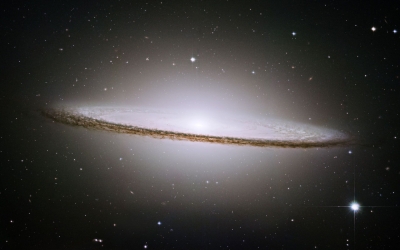
Astronomers from Europe are at the moment considering building a telescope 10 times more powerful than any that exist the very large telescope. With it, they hope to look farther into the universe than ever before. Even so, no one really expects to see the edge of the universe.
Modern studies of the universe are based on Einstein’s general theory of relativity. This theory states that matter has a gravitational field which distorts space and time so that space becomes curved and time runs fast or slow. The gravity of matter also bends light.
In testing the effects of the general theory, scientists have found that it accounts for the motion of planets circling the sun and stars orbiting other stars.
Accepting that the theory can be applied to the universe as a whole, cosmologists also accept one final production of Einstein’s theory that the universe has no edge. The theory in fact says that there are two possibilities for the universe. One is that it curves round on itself, like the surface of the planet. Although it has no edge, it is finite. A space traveller setting off in one Direction and never changing course would eventually arrive at the starting point. This is a closed universe.
The other possibility is that the universe is infinite, that space goes on for ever in all directions. In this open universe, however far you travelled you would always come across new regions of space.
Whichever possibilities correct depends on the amount of matter in the universe. If there is enough matter, its gravity will bend space around so that the universe is closed. In this case, the gravity is strong enough eventually to halt the expansion of the universe, and draw galaxies together into a big crunch.
The most recent estimates of the amount of matter indicate that there is not enough matter to close the universe. The universe is there is likely to be infinite in size, with no end. This also means that the universe will keep on expanding for ever.
Picture Credit : Google

